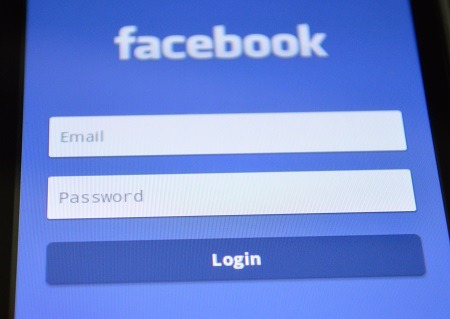Steven Spielberg, Dinosaurs, Oscars and Degrees, Netflix and Coursera
 Filmmaker Steven Spielberg has been having an argument with Netflix. His tenure as Governor of the Academy that oversees the Oscars ends this summer, but his very public feelings about Netflix has become an issue in the motion picture industry.
Filmmaker Steven Spielberg has been having an argument with Netflix. His tenure as Governor of the Academy that oversees the Oscars ends this summer, but his very public feelings about Netflix has become an issue in the motion picture industry.
Netflix is just the biggest name in streaming services and Spielberg isn't happy with this disruptor of his industry. He is all for protecting the traditional film studio pipeline and the Oscars that prioritize theaters over living rooms. He would like to see movies made for streaming services be excluded from the major categories at next year’s Oscars. He thinks that Netflix movies (and really ones from Amazon and other companies) should compete for Emmys, not Oscars.
“Once you commit to a television format, you’re a TV movie,” he told British ITV News in March, 2018. “I don’t believe films that are just given token qualifications in a couple of theaters for less than a week should qualify for the Academy Award nomination.”
Roma, the film that was up for Best Picture, was the focus of a lot of this debate, was at the center of his argument this spring. The film lost in that category to Green Book, but it won Best Foreign Film, and Alfonso Cuaron won Best Director, so it certainly had a big impact this year.
 Now what does this have to do with education and this blog? I do tend to view a lot of things through an education lens (pun intended). It is how I have lived my adult life.
Now what does this have to do with education and this blog? I do tend to view a lot of things through an education lens (pun intended). It is how I have lived my adult life.
I love movies. I got my MA in communications with a concentration of film and video back in the late 1970s when video was already taking the place of film. In my earliest teaching days, I taught students to cut film. It was a literal cut on a piece of film stock. At one time we even cut videotape that came on reels. By the 1980s, we were editing video by copying and pasting it to other videotape and the reels became VHS tapes. Analog became digital and though my students still did some animation frame by frame using Super 8 film cameras, we knew that would end soon.
I would compare Spielberg's argument with the arguments about disruptors that we have in education.
The Massive Open Online Course (MOOC) is a good example. Going back to 2012 (the supposed "Year of the MOOC"), there were many similar arguments being heard. MOOCs will destroy traditional universities and degrees. Online learning will become free. The quality of MOOCs is inferior to credit-based online courses from universities.
Universities were movie theaters. Roma was a MOOC. Coursera was Netflix.
In the 7 short years since the MOOC got its big push, they have changed, been adopted by traditional universities and adapted to their own purposes. They didn't destroy traditional colleges or college course or degrees. They did disrupt all of those things. All of those things have changed in some ways, and they will continue to change as the MOOC and its evolved offspring appear.
 Is Steven Spielberg a dinosaur?
Is Steven Spielberg a dinosaur?
He has been at the technology edge for all of his career. Yes, he prefers to shoot on 35 mm film if he can, but when he needs the video technology, such as in his Ready Player One, he goes that route.
As an Academy Governor, he is in a place where he feels the responsibility to protect the movie business, which he clearly loves. That includes the traditional distribution vector of movie theaters. Theaters have been threatened since the arrival of television in a big way back in the 1950s. So their dominance for distribution has been threatened for more than 60 years. But theaters still exist, though in reduced numbers.
Streaming services like Netflix are a big competitor, but so are Disney and other traditional studios that want a piece of that streaming money and may care less for their theater share of profit which has been shrinking over the past few decades.
Spielberg is a dinosaur in that he wants the old system to continue. he prefers the status quo. If he was a professor or college administrator, he probably would have opposed MOOCs.
Probably, as with the MOOC, both theaters and streaming films will continue to exist. Each will influence the other, but streaming and MOOCs will not disappear.
It is understandable that Netflix wanted Roma to be considered for an Oscar, so it put it in theaters for a limited release to qualify. there are some people who are willing to pay for a film in a theater on that big screen with an audience, even though it will appear on their television set in their living room if they wait a few weeks. But Netflix makes its money from those streaming subscriptions.
Actually, it is kind of a myth that Netflix "produced" Roma.” Netflix had nothing to do with “making” or even funding “Roma.” That is actually the case for many of the shows and movies labeled as Netflix Originals. They buy films just like the other traditional studios. Participant Media financed Roma. It was shot by Cuarón’s production company. Any of the traditional studios could have acquired Roma and put it in theaters. A black-and-white film in Spanish is not as appealing to many studios, even if the director has a good track record.
If I use Coursera, the world’s largest massive open online course (MOOCs in some ways) with a learner population of nearly 40 million, as my educational Netflix, I would point out that their courses are really courses made by traditional universities. The universities are the film studios. Coursera is their distributor.
If Spielberg fights to keep things "as is" then he is a dinosaur. There are still education Spielbergs who don't want online courses at all. MOOCs are certainly something they don't want to be considered for credit toward a degree. Credits and degrees are the Oscars of higher education.
It is still evolution more than it is revolution.
 This year it was revealed that a lot more apps are automatically sending data to Facebook. In some cases this happens even if the user is logged out of Facebook. For Android devices this includes an odd mix that includes Spotify, Kayak, Yelp, Shazam, Instant Heart Rate, Duolingo, TripAdvisor and The Weather Channel.
This year it was revealed that a lot more apps are automatically sending data to Facebook. In some cases this happens even if the user is logged out of Facebook. For Android devices this includes an odd mix that includes Spotify, Kayak, Yelp, Shazam, Instant Heart Rate, Duolingo, TripAdvisor and The Weather Channel. Amber says in her newsletter, that looking ahead "We will also continue to see social responsibility expand beyond the consumer. For example, let's think about investment dollars into new technologies. In the US alone, according to PitchBook, venture capital investment in US companies hit $100B in 2018. If we dig into these dollars, there are very few memorable headlines about ethical investments, but that is bound to change - especially as executives at large tech companies set new standards.
Amber says in her newsletter, that looking ahead "We will also continue to see social responsibility expand beyond the consumer. For example, let's think about investment dollars into new technologies. In the US alone, according to PitchBook, venture capital investment in US companies hit $100B in 2018. If we dig into these dollars, there are very few memorable headlines about ethical investments, but that is bound to change - especially as executives at large tech companies set new standards.